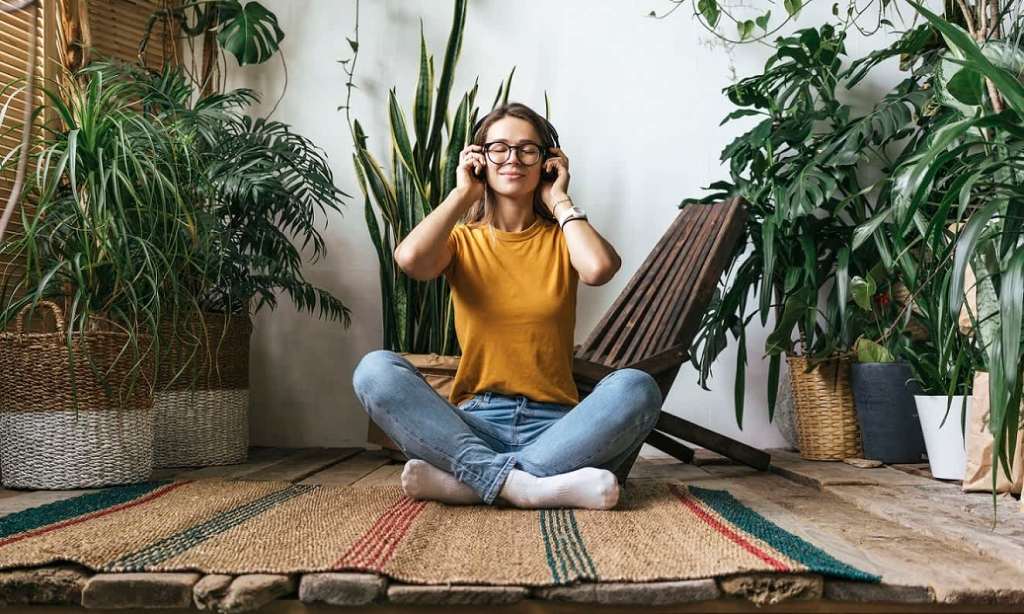Spotify, the Swedish audio streaming app that revolutionised the way we all listen to music, has released its annual report on the culture and habits of its users.
With some 356 million active users, and more than 158 million paid subscribers, Spotify has dug down into the data of its listeners to reveal that millennials are driving change in a more inclusive cultural environment.
The report also shows that millennials – now between the ages of 26 and 40 – primarily use audio to connect with friends and family, stay up to date on the news, and get some “me time.”
Spotify says that 2020 was a “cultural wake-up call” and that 2021 is set to be a year of cultural rebirth. 53% of younger people have actively sought out content from creators of more diverse backgrounds and are keen to learn more about diversity, inclusivity, and perspectives outside of their own.
We’re also getting a little sad in our listening tastes, with millennials more likely to say that their favourite podcast host feels like their friend. We’ve also been streaming a lot more ‘nostalgic’ music, focusing on playlists, artists, and genres from our ‘youth’ (God I hate time).
https://twitter.com/scenestepsister/status/1415460899444301824?s=20
Tuning in, dropping out
Survey respondents reported that they use audio as a daily form of escapism and a way to keep themselves grounded.
76% of millennials say that they use audio to reduce their stress levels.
We also consume audio in different formats to help us through the day, switching quickly between podcasts, music playlists, and binaural beats or mediation music.
75% of Australian millennials say that they see audio as a mental health resource.
Millennials as a demographic saw the biggest rise in interest in podcasts with a focus on mental health, self-help, and spirituality, with a 208% rise in mental health podcast subscriptions among millennials over the past year.
Immersed in sound
The pandemic sent us all to our rooms and away from the gigs, bars, and clubs where we would normally enjoy live music.
The rise of streaming online gigs was a big characteristic of the pandemic and millennials, above all others, have said that they are the most likely to continue streaming live music from their homes.
68% of us attended a live virtual show in the past year and while the younger crowd, Gen Z (15-25), say they would rather go to a real-life music event, we’re happy to keep turning up online.
43% of millennials have said that they would still go to a virtual gig after the pandemic is over because they are cheaper and more convenient than IRL experiences.
Millennials are also the most likely to say that audio is the most immersive form of content, with 64% of us saying it’s the most engaging way to consume media.
We also tend to want to control the music around us wherever we go and during whatever we’re doing. For example, 65% of millennials say that being able to control the soundtrack while gaming is important to them.
Time spent streaming Spotify through gaming consoles while playing increased by 35% over the past year.
One nation under pod
Our distrust in traditional societal institutions, from politics, to religion, to media, is lower than ever around the world.
Millennials are turning more and more to podcasts to access a trusted news source and are more likely to report feeling that they can trust a story when it’s told to them by their favourite podcast host.
It’s the ‘rawness’ of podcasting that encourages relatability and trust. While traditional news hardly ever goes off script, the anecdotes and off-the-cuff nature of podcasting appeal to millennials who say that the emotional nature of a story adds weight.
We’re also a bit picky with who we listen to, with 71% of us believing that the voice of a podcast host can make or break a show.
Representation now
Podcasting and audio as a medium has a way to bypass traditional media gatekeepers and is easily distributable through online platforms and social media.
As such, it’s easier than ever for anyone to pick up a mic and start being a podcast host or a musician. That means underrepresented demographics are more easily able to create content and we’re here for it.
51% of millennials in Australia report seeking out content from more diverse creators – more than any other group.
Through hearing and engaging with non-white perspectives, 67% of millennials believe that they are helping to build a more equitable society.
We also like to understand the cultural history and significance of what we’re listening to, with 43% of us saying that listening to music without cultural context is problematic.
It’s important to point out that all of this info comes from Spotify, a platform that provides audio, and so the claims are likely to be a little overstated on the importance of audio.
However, the data does suggest that audio is likely to continue its rise to dominance in our lives and in our media and will continue to play an important role in how we see and interact with the world.
Read more stories from The Latch and subscribe to our email newsletter.

